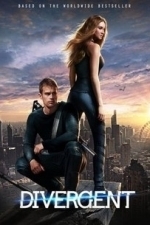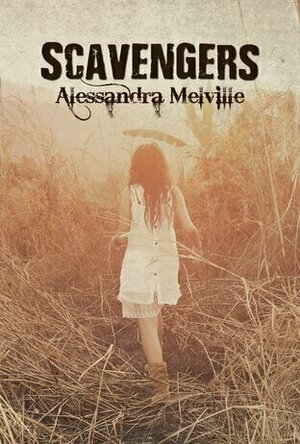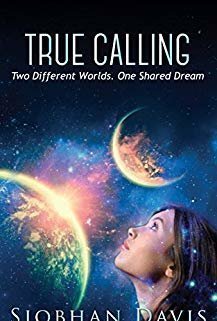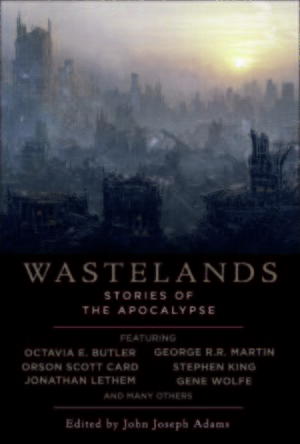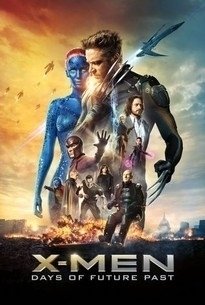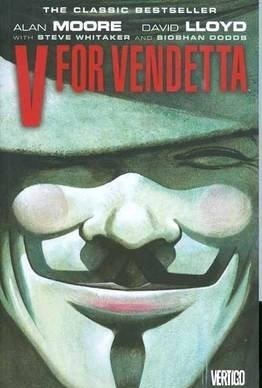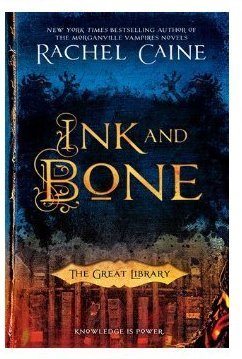Search
Gareth von Kallenbach (980 KP) rated Divergent (2014) in Movies
Aug 6, 2019
One Choice, decided your friends. One Choice, defines your beliefs. One Choice, determines your loyalties – Forever. ONCE CHOICE CAN TRANSFORM YOU”
Beatrice Prior lives in a futuristic version of Chicago wherein it is divided into five different distinct factions. Each faction is dedicated to following one single virtue. The first faction is Abnegation, known as the “stiffs” of the community. It was formed by those who blame selfishness for human nature’s errors; thereby eliminating anything that can be seen as being selfish. Dauntless was formed by those who blamed cowardice for society’s problems; thereby finding bravery by facing ones fears. Erudite- the “brains” of the operation. Run by those who blamed human ignorance for the faults of society. They formed Erudite as a way of eliminating ignorance and darkness from human minds. Amity- the “flower children” who dislike war, was formed in order to keep a peaceful society that would be free from conflict and sadness caused by wars and instigation. Candor- a faction formed by those who blame duplicity and deception, who believe that dishonesty is the key fault in human nature which began evil and war. There are also those who do not fit into any of the factions. Those people are called The Factionless and are people who are poor and live on the streets. There are few who possess the traits of all five factions. They are called The Divergent. Being a Divergent is considered extremely dangerous because their minds can not be controlled.
The only way to find out which faction one belongs to is by taking an aptitude test. It’s not until the ceremony that a person chooses to join a faction according to the test results. Beatrice doesn’t have the luxury of knowing which faction she belongs to because her test results came back as inconclusive meaning she is in fact a Divergent. She chooses to leave her mother and father behind in Abnegation and decides to join Dauntless while her brother is placed into Erudite. The family is torn apart without knowing her secret of being a Divergent. After she arrives into Dauntless she is forced to be brave by overcoming obstacles, finding love and making friends while finding herself in a war that tries to overthrow the government.
I was pleasantly surprised with how much action this film has. Without reading the books prior to screening the film, it is hard to say if the film follows closely to the book Honestly I did not have high hopes for the film and I’m not sure why other than its story being somewhat similar to The Hunger Games in all of its dystopian glory. I am glad to report that though the two stories are alike they are unique in their own way. One is not better than the other, they are just different and should not be misconstrued as being the same type of story. The acting is exceptional! The actors are perfect at portraying their characters. After being sucked in from beginning to end it not only left me wanting more but it left me wanting to know the characters more. I am left with wanting to read the series of books that much more!
“I feel like someone breathed new air into my lungs. I am not Abnegation. I am not Dauntless.
I am Divergent.”
Beatrice Prior lives in a futuristic version of Chicago wherein it is divided into five different distinct factions. Each faction is dedicated to following one single virtue. The first faction is Abnegation, known as the “stiffs” of the community. It was formed by those who blame selfishness for human nature’s errors; thereby eliminating anything that can be seen as being selfish. Dauntless was formed by those who blamed cowardice for society’s problems; thereby finding bravery by facing ones fears. Erudite- the “brains” of the operation. Run by those who blamed human ignorance for the faults of society. They formed Erudite as a way of eliminating ignorance and darkness from human minds. Amity- the “flower children” who dislike war, was formed in order to keep a peaceful society that would be free from conflict and sadness caused by wars and instigation. Candor- a faction formed by those who blame duplicity and deception, who believe that dishonesty is the key fault in human nature which began evil and war. There are also those who do not fit into any of the factions. Those people are called The Factionless and are people who are poor and live on the streets. There are few who possess the traits of all five factions. They are called The Divergent. Being a Divergent is considered extremely dangerous because their minds can not be controlled.
The only way to find out which faction one belongs to is by taking an aptitude test. It’s not until the ceremony that a person chooses to join a faction according to the test results. Beatrice doesn’t have the luxury of knowing which faction she belongs to because her test results came back as inconclusive meaning she is in fact a Divergent. She chooses to leave her mother and father behind in Abnegation and decides to join Dauntless while her brother is placed into Erudite. The family is torn apart without knowing her secret of being a Divergent. After she arrives into Dauntless she is forced to be brave by overcoming obstacles, finding love and making friends while finding herself in a war that tries to overthrow the government.
I was pleasantly surprised with how much action this film has. Without reading the books prior to screening the film, it is hard to say if the film follows closely to the book Honestly I did not have high hopes for the film and I’m not sure why other than its story being somewhat similar to The Hunger Games in all of its dystopian glory. I am glad to report that though the two stories are alike they are unique in their own way. One is not better than the other, they are just different and should not be misconstrued as being the same type of story. The acting is exceptional! The actors are perfect at portraying their characters. After being sucked in from beginning to end it not only left me wanting more but it left me wanting to know the characters more. I am left with wanting to read the series of books that much more!
“I feel like someone breathed new air into my lungs. I am not Abnegation. I am not Dauntless.
I am Divergent.”
Night Reader Reviews (683 KP) rated Scavengers in Books
Dec 5, 2020
Surprisingly amazing book!!
Scavengers by Alessandra Melville is ideal for those who like post-apocalyptic stories. While readers won’t find zombies in these pages they will discover a world with Fallout tones mixed with Divergent.
Olivia Taylor lives safely within the confines of the Community along with other survivors. This Community was founded after a virus outbreak to protect the survivors from raider attacks. Unfortunately not all is perfect in the Community. Soaring temperatures and a lack of resources mixed with the ever present threat of discovery cause the Community’s numbers to drop, resulting in the need for a Scavenging trip. Olivia and all the other children of the Community that are of age report to volunteer to scavenge and this year she is finally picked. Now along with four others Olivia must leave the safety of the Community in an attempt to bring back supplies, food, and new members or not come back at all.
Before the foundation of the Community disaster struck the world. A virus ran rampant and high temperatures cause drought and dehydration. Out of desperation the entire Taylor family leaves their home, along with many others, in search of a safer place to live. Yet in a world that is falling apart danger is everywhere and the journey is not an easy one. Finally they meet up with others fleeing the city but they have to stop and wonder if anywhere is safe anymore.
I was very happy to find halfway through the book that it changes focus from Olivia to Grace. This answered many questions that I was beginning to forum but was afraid I would never get an answer too, and yet did not explain everything. The book is also well detailed and I can sense a well thought out backstory driving everything. I wanted more out of the book in the end for both parts of the story. The cliffhangers and unanswered questions would easily be fixed with a sequel that I feel this book deserves. Although this is a full length book it still felt more like a teaser than anything.
Teens and young adults will enjoy this book just as much if not more so than adults. While there are hints toward sexual activities both wanted and not nothing happens with any detail and will go over the heads of many young readers. The young readers will enjoy the story and I suppose some of the older readers will start questioning just how these events came to pass. I rate this book 4 out of 4. This book deserves a sequel. It is very well written and an enjoyable book with a style that reminded me of Hunger Games (along with a few others previously mentioned). It could easily make itself at home on shelves right alongside other such dystopian books. This book is so gripping a read that many reader should be able to finish it in just a couple of days.
Scavengers | Book| Austin Macauley Publishers
Olivia Taylor lives safely within the confines of the Community along with other survivors. This Community was founded after a virus outbreak to protect the survivors from raider attacks. Unfortunately not all is perfect in the Community. Soaring temperatures and a lack of resources mixed with the ever present threat of discovery cause the Community’s numbers to drop, resulting in the need for a Scavenging trip. Olivia and all the other children of the Community that are of age report to volunteer to scavenge and this year she is finally picked. Now along with four others Olivia must leave the safety of the Community in an attempt to bring back supplies, food, and new members or not come back at all.
Before the foundation of the Community disaster struck the world. A virus ran rampant and high temperatures cause drought and dehydration. Out of desperation the entire Taylor family leaves their home, along with many others, in search of a safer place to live. Yet in a world that is falling apart danger is everywhere and the journey is not an easy one. Finally they meet up with others fleeing the city but they have to stop and wonder if anywhere is safe anymore.
I was very happy to find halfway through the book that it changes focus from Olivia to Grace. This answered many questions that I was beginning to forum but was afraid I would never get an answer too, and yet did not explain everything. The book is also well detailed and I can sense a well thought out backstory driving everything. I wanted more out of the book in the end for both parts of the story. The cliffhangers and unanswered questions would easily be fixed with a sequel that I feel this book deserves. Although this is a full length book it still felt more like a teaser than anything.
Teens and young adults will enjoy this book just as much if not more so than adults. While there are hints toward sexual activities both wanted and not nothing happens with any detail and will go over the heads of many young readers. The young readers will enjoy the story and I suppose some of the older readers will start questioning just how these events came to pass. I rate this book 4 out of 4. This book deserves a sequel. It is very well written and an enjoyable book with a style that reminded me of Hunger Games (along with a few others previously mentioned). It could easily make itself at home on shelves right alongside other such dystopian books. This book is so gripping a read that many reader should be able to finish it in just a couple of days.
Scavengers | Book| Austin Macauley Publishers
Eleanor Luhar (47 KP) rated True Calling in Books
Jun 24, 2019
This was free in the Amazon Kindle store and I thought it looked pretty cool, so I downloaded it a few months ago. Despite being just 369 pages long, it took me a shockingly long time to read...
Ariana is now a citizen of Novo, where only the fittest humans were transported after the near-destruction of planet Earth. From very early on, we are introduced to Zane through Ari's dreams - but she has no idea who he is, or why she can see him in her sleep. We don't discover Zane's identity until much further through the book.
A matchmaking system is set up for all eligible young people, taking the name of "The Calling." Ari realises her feelings for the popular Cal Remus, and is luckily given the opportunity to be matched with him. The whole deal with "The Calling" reminds me very much of books such as The Selection and ?Matched.
Things seem to be going pretty well (despite the fact that Ariana is appalled at the way the government is choosing who can love who) until Ariana's father disappears and leaves behind some vital information. Suddenly, Ari isn't sure whether Cal can really be trusted, and Zane is beginning to contact her directly through her mind.
A small section of this book takes place back on Earth, told from Zane's perspective. He's working for an underground resistance movement, and is still infatuated with Ariana. He gets training to try and help him communicate with her, and Ariana's father has bestowed a dying wish upon him; to keep Ari away from Cal.
Things get pretty complicated, and the love triangle is both predictable and not at the same time. Ari doesn't remember how much she loved Zane, but can sense that there was some emotion there. Cal's father is clearly opposed to his son being associated with Ariana, and is also a despicable man in himself. There are even hints as to Cal being untrustworthy, which was something I didn't actually expect.
It's kind of a typical dystopian YA novel, but it does have some good twists. My main problem was with the lack of time-keeping; I couldn't tell whether things happened over a course of a few days or multiple months. Even if the time-frame was specified in some places, it still didn't feel like it passed in the intended way.
Another thing is that the characters spoke in a rather unnatural language. Extravagant words were unnecessarily used, coupled with overly-simple phrases. It just sounded wrong.
It took me a long time to read a relatively short book, which is always a bad sign. It wasn't painfully hard to read, but I wasn't really begging to read on either. That being said, I read a little into the first chapter of the sequel, Beyond Reach, which is included at the end of this ebook, and I am rather curious as to what's going on. Still, I don't know if I'm willing to spend any money on it.
So this wasn't a great book, but it wasn't bad. Some parts felt as though the author was trying a bit too hard to make the book seem more professional, which always irritates me. I think 2.5 stars is an appropriate rating for this.
Ariana is now a citizen of Novo, where only the fittest humans were transported after the near-destruction of planet Earth. From very early on, we are introduced to Zane through Ari's dreams - but she has no idea who he is, or why she can see him in her sleep. We don't discover Zane's identity until much further through the book.
A matchmaking system is set up for all eligible young people, taking the name of "The Calling." Ari realises her feelings for the popular Cal Remus, and is luckily given the opportunity to be matched with him. The whole deal with "The Calling" reminds me very much of books such as The Selection and ?Matched.
Things seem to be going pretty well (despite the fact that Ariana is appalled at the way the government is choosing who can love who) until Ariana's father disappears and leaves behind some vital information. Suddenly, Ari isn't sure whether Cal can really be trusted, and Zane is beginning to contact her directly through her mind.
A small section of this book takes place back on Earth, told from Zane's perspective. He's working for an underground resistance movement, and is still infatuated with Ariana. He gets training to try and help him communicate with her, and Ariana's father has bestowed a dying wish upon him; to keep Ari away from Cal.
Things get pretty complicated, and the love triangle is both predictable and not at the same time. Ari doesn't remember how much she loved Zane, but can sense that there was some emotion there. Cal's father is clearly opposed to his son being associated with Ariana, and is also a despicable man in himself. There are even hints as to Cal being untrustworthy, which was something I didn't actually expect.
It's kind of a typical dystopian YA novel, but it does have some good twists. My main problem was with the lack of time-keeping; I couldn't tell whether things happened over a course of a few days or multiple months. Even if the time-frame was specified in some places, it still didn't feel like it passed in the intended way.
Another thing is that the characters spoke in a rather unnatural language. Extravagant words were unnecessarily used, coupled with overly-simple phrases. It just sounded wrong.
It took me a long time to read a relatively short book, which is always a bad sign. It wasn't painfully hard to read, but I wasn't really begging to read on either. That being said, I read a little into the first chapter of the sequel, Beyond Reach, which is included at the end of this ebook, and I am rather curious as to what's going on. Still, I don't know if I'm willing to spend any money on it.
So this wasn't a great book, but it wasn't bad. Some parts felt as though the author was trying a bit too hard to make the book seem more professional, which always irritates me. I think 2.5 stars is an appropriate rating for this.
Hadley (567 KP) rated Wastelands: Stories of the Apocalypse in Books
Aug 19, 2020
From the Book of Revelations to the Road Warrior; from A Canticle for Leibowitz to the Road, storytellers have long imagined the end of the world, weaving eschatological tales of catastrophe, chaos, and calamity. In doing so, these visionary authors have addressed one of the most challenging and enduring themes of imaginative fiction: the nature of life in the aftermath of total societal collapse.
Overall, there were a few good stories inside this book, but some of them seemed out of place, and there were ones that were just boring or not written well (like ending the story just to make it a short story). I only recommend this book to people who absolutely love dystopian stories, but for those who are just light readers of it, I don't think you'd enjoy it.
Being that this is a review for a handful of short stories, I am only going to mention the ones I really liked.
"Salvage" by Orson Scott Card
A long time after atom bombs have destroyed most of the Earth, a young man named Deaver finds out that there may be gold hidden within a Mormon temple, and he's willing to risk everything to get it.
I loved the story, the characters, and the playful banter between them.
"Bread and Bombs" by M. Rickert
During war time, children become curious about an odd neighbor who moves in. Parents demand that their children stay away from them because the neighbor's people are the reason so many people have died.
I liked that the story is through the childrens' eyes, not the adults.
"Dark, Dark Were the Tunnels" by George R. R. Martin
In the story that follows, you'll meet Greel. He is a scout of the People. He's penetrated the Oldest Tunnels, where the taletellers said the People had come from a million years ago. He is no coward, but he is afraid, and with good reason. You see, he's very used to being in the dark, but some visitors have come to the tunnels, and they've brought light with them...
I really liked the whole idea of people tunneling underground when nuclear war happens; there are not enough stories written about this!
"Never Despair" by Jack McDevitt
'Never Despair' tells the story of Chaka Milana, a woman who leaves her hometown in search of a storied place that holds the secrets of the Roadmakers, the almost-mythical builders of the concrete strips that cover the land, and the ruined cities with towers so high that a person could not ascend one in a day.
The story was so good that I wish it were a novel.
"Artie's Angels" by Catherine Wells
A post-apocalyptic society involving bicycles and young men.
This was probably my most favorite story out of the entire book!
"Inertia" by Nancy Kress
A story about the victims of a disfiguring epidemic who are interned in the modern equivalent of leper colonies.
Kress was able to make such a big picture out of very few characters, and in just a few pages. Really well-written.
"The End of the World As We Know It" by Dale Bailey
A lone survivor of an apocalypse attempts to grapple with the emotional dimension of his loss.
Just a really good story.
Overall, there were a few good stories inside this book, but some of them seemed out of place, and there were ones that were just boring or not written well (like ending the story just to make it a short story). I only recommend this book to people who absolutely love dystopian stories, but for those who are just light readers of it, I don't think you'd enjoy it.
Being that this is a review for a handful of short stories, I am only going to mention the ones I really liked.
"Salvage" by Orson Scott Card
A long time after atom bombs have destroyed most of the Earth, a young man named Deaver finds out that there may be gold hidden within a Mormon temple, and he's willing to risk everything to get it.
I loved the story, the characters, and the playful banter between them.
"Bread and Bombs" by M. Rickert
During war time, children become curious about an odd neighbor who moves in. Parents demand that their children stay away from them because the neighbor's people are the reason so many people have died.
I liked that the story is through the childrens' eyes, not the adults.
"Dark, Dark Were the Tunnels" by George R. R. Martin
In the story that follows, you'll meet Greel. He is a scout of the People. He's penetrated the Oldest Tunnels, where the taletellers said the People had come from a million years ago. He is no coward, but he is afraid, and with good reason. You see, he's very used to being in the dark, but some visitors have come to the tunnels, and they've brought light with them...
I really liked the whole idea of people tunneling underground when nuclear war happens; there are not enough stories written about this!
"Never Despair" by Jack McDevitt
'Never Despair' tells the story of Chaka Milana, a woman who leaves her hometown in search of a storied place that holds the secrets of the Roadmakers, the almost-mythical builders of the concrete strips that cover the land, and the ruined cities with towers so high that a person could not ascend one in a day.
The story was so good that I wish it were a novel.
"Artie's Angels" by Catherine Wells
A post-apocalyptic society involving bicycles and young men.
This was probably my most favorite story out of the entire book!
"Inertia" by Nancy Kress
A story about the victims of a disfiguring epidemic who are interned in the modern equivalent of leper colonies.
Kress was able to make such a big picture out of very few characters, and in just a few pages. Really well-written.
"The End of the World As We Know It" by Dale Bailey
A lone survivor of an apocalypse attempts to grapple with the emotional dimension of his loss.
Just a really good story.
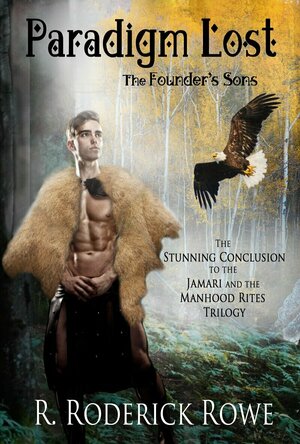
Paradigm Lost: Jamari and the Manhood Rites: The Founder's Sons: Part 3
Book
A forest paradise surrounded by lands gutted from corporate greed. The Elk Creek Tribe holds the...
Dystopian Fantasy Futuristic
Movie Metropolis (309 KP) rated X-Men: Days of Future Past (2014) in Movies
Jun 10, 2019 (Updated Jun 10, 2019)
More DC than Marvel
Bryan Singer’s return to the X-Men franchise comes at the perfect time both for the series and its director.
After last year’s poorly executed Jack the Giant Slayer, Singer needed to come back to home turf and after a string of irritating X-Men films, including the entertaining but soulless X-Men: The Last Stand and the downright offensive Wolverine origins story, it seems the superhero series needed to do the same.
But can a re-partnering 11 years after the brilliant X2 restore the magic of one of Marvel’s best comics?
Partially is the answer here. Singer restores the cinematic flair and sparkle of the series and brings back a lot of old faces but forgets a lot of the fun in the process.
x-men-days-of-future-past-character-poster-01.jpgDays of Future Past is set in a dystopian future as a war between mutants and humans continues to rage. Charles Xavier (Patrick Stewart), Magneto (Ian McKellen), Storm (Halle Berry) and many other fan favourites return to the series after being absent for some time. We follow these characters as they try to escape the sentinels; an army of robots impressively rendered in CGI designed to kill any mutant on sight, friend or foe.
The only way to stop the war is to send a mutant back to 1973 when the sentinel program was put in motion. Unfortunately, Hugh Jackman’s Wolverine is the chosen one and remains the lead character throughout the film.
Back in 1973, the mutants from X-Men First Class are blissfully unaware of what lies in store for them, though they still have their own personal battles to deal with.
As the film progresses, it becomes painfully obvious that this is very much a “First Class” era film. James McAvoy’s impressive take on the young Charles Xavier returns, as does Michael Fassbender’s Magneto.
However, only Jennifer Lawrence’s Mystique makes a lasting impact amongst the 1973 era mutants. You can see the pain and torment etched onto her face throughout theJennifer-Lawrence-mystique film and as in The Hunger Games she steals focus from everyone around her. Game of Thrones’ Peter Dinklage also joins the cast as the film’s primary antagonist Bolivar Trask and is a real joy to watch. His character is understated in every way, but he remains an iconic presence throughout.
However, as impressive as the set pieces and acting performances are, it is in the future where we wish to see more. The ‘classic’ characters are barely given any screen time which is a real shame and the real mutant cost of the war is glossed over entirely. The special effects are genuinely very good. Each of the action sequences is well choreographed and the CGI is great, especially the rendering on the future sentinels which can adapt to seek a mutant’s power – no matter what it is.
Unfortunately, the fun factor is completely lost as Singer ramps up the tension and the death toll. In fact, only one character provides the humour and that is Evan Peters’ portrayal of Quicksilver who is only on screen for 15 minutes.
Overall, X-Men: Days of Future Past is definitely the best film of the series and thankfully does away with the atrocities that have been committed previously in the franchise. However, it feels like Singer was trying so hard to repair his predecessor’s mistakes, he forgot some of the key elements of a Marvel superhero film in the process – this is more DC than Marvel.
https://moviemetropolis.net/2014/06/01/x-men-days-of-future-past-review/
After last year’s poorly executed Jack the Giant Slayer, Singer needed to come back to home turf and after a string of irritating X-Men films, including the entertaining but soulless X-Men: The Last Stand and the downright offensive Wolverine origins story, it seems the superhero series needed to do the same.
But can a re-partnering 11 years after the brilliant X2 restore the magic of one of Marvel’s best comics?
Partially is the answer here. Singer restores the cinematic flair and sparkle of the series and brings back a lot of old faces but forgets a lot of the fun in the process.
x-men-days-of-future-past-character-poster-01.jpgDays of Future Past is set in a dystopian future as a war between mutants and humans continues to rage. Charles Xavier (Patrick Stewart), Magneto (Ian McKellen), Storm (Halle Berry) and many other fan favourites return to the series after being absent for some time. We follow these characters as they try to escape the sentinels; an army of robots impressively rendered in CGI designed to kill any mutant on sight, friend or foe.
The only way to stop the war is to send a mutant back to 1973 when the sentinel program was put in motion. Unfortunately, Hugh Jackman’s Wolverine is the chosen one and remains the lead character throughout the film.
Back in 1973, the mutants from X-Men First Class are blissfully unaware of what lies in store for them, though they still have their own personal battles to deal with.
As the film progresses, it becomes painfully obvious that this is very much a “First Class” era film. James McAvoy’s impressive take on the young Charles Xavier returns, as does Michael Fassbender’s Magneto.
However, only Jennifer Lawrence’s Mystique makes a lasting impact amongst the 1973 era mutants. You can see the pain and torment etched onto her face throughout theJennifer-Lawrence-mystique film and as in The Hunger Games she steals focus from everyone around her. Game of Thrones’ Peter Dinklage also joins the cast as the film’s primary antagonist Bolivar Trask and is a real joy to watch. His character is understated in every way, but he remains an iconic presence throughout.
However, as impressive as the set pieces and acting performances are, it is in the future where we wish to see more. The ‘classic’ characters are barely given any screen time which is a real shame and the real mutant cost of the war is glossed over entirely. The special effects are genuinely very good. Each of the action sequences is well choreographed and the CGI is great, especially the rendering on the future sentinels which can adapt to seek a mutant’s power – no matter what it is.
Unfortunately, the fun factor is completely lost as Singer ramps up the tension and the death toll. In fact, only one character provides the humour and that is Evan Peters’ portrayal of Quicksilver who is only on screen for 15 minutes.
Overall, X-Men: Days of Future Past is definitely the best film of the series and thankfully does away with the atrocities that have been committed previously in the franchise. However, it feels like Singer was trying so hard to repair his predecessor’s mistakes, he forgot some of the key elements of a Marvel superhero film in the process – this is more DC than Marvel.
https://moviemetropolis.net/2014/06/01/x-men-days-of-future-past-review/
Heather Cranmer (2721 KP) rated Alternity in Books
Jun 7, 2018
(This review is also on my blog <a href="http://themisadventuresofatwentysomething.blogspot.co.uk">The (Mis)Adventures of a Twenty-Something Year Old Girl</a>).
When I read the synopsis of Alternity by Mari Mancusi, I knew I would probably love this book! I wasn't wrong. This book is amazing!
Skye is just your average 18 year old girl. There's nothing that different about her. She has a fantastic boyfriend, she goes to school, and she works as a video games tester. She's been having these strange nightmares about being in a weird place. They're making her lose sleep until one day she actually wakes up in the place from her nightmare. Now she doesn't know who to trust. And why do people keep calling her Mariah?? Skye soon discovers she's arrived on another planet, and something sinister is going on.
The title to this book is great!! Alternity - like an alternative reality. It definitely fits right in with the story. From what I've heard, this book was originally released under the title of Moongazing. I'm glad the author decided to change the title as Alternity sounds like a much more interesting title.
I love the sci-fi feel of this cover. The picture of Skye on the front with a katana and the moon in the background is perfect for this story. I'm usually not a fan of just putting a pretty face on the cover, but it seems to work with this book.
I thought the world building and setting were fantastic!! The author has us believe that the planet of Terra is very much like Earth would be if there was to be some sort of post apocalyptic event. There's no sun, no sky...just bleakness. The underground bit of Terra is portrayed rather well with it being full of the poor people of Terra and those who have been mutated by radiation due to having to mine for the rich people.
The pacing for Alternity is beyond fantastic! In fact, I couldn't put this book down! Each chapter had me looking forward to the next as everything just flowed really well. Never, not even for one moment, was I even remotely bored reading Alternity.
The dialogue is fantastic in this book. I especially enjoyed the dialogue between Dawn and Skye. There are a few swear words but not many. The only minor annoyance I found was that at two points in the book, the author goes from using present tense to past tense.
The characters in this book are very believable. Skye was a great protagonist. She felt like a real person. In fact, I found myself wanting to be friends with her especially as we both have a love for video games! I love the fact that she started out a bit unsure of herself but throughout the story, she became a strong person. Dawn came across as a lovely guy. He wants what's best for his people, and he'll do whatever it takes to protect them. Duske makes an excellent villain. He's very charming, but he can be very very vile. He is very believable as being a bad guy, and he plays the role excellently.
Alternity by Mari Mancusi is a well executed book that will leave you feeling as if you are a part of the book. This is definitely one of those books that you have to read as you will not be disappointed!
I'd recommend this book to everyone aged 16+, especially those who are fans of dystopian or post-apocalyptic novels. However, I feel this is one of those books that can be enjoyed by almost everyone.
When I read the synopsis of Alternity by Mari Mancusi, I knew I would probably love this book! I wasn't wrong. This book is amazing!
Skye is just your average 18 year old girl. There's nothing that different about her. She has a fantastic boyfriend, she goes to school, and she works as a video games tester. She's been having these strange nightmares about being in a weird place. They're making her lose sleep until one day she actually wakes up in the place from her nightmare. Now she doesn't know who to trust. And why do people keep calling her Mariah?? Skye soon discovers she's arrived on another planet, and something sinister is going on.
The title to this book is great!! Alternity - like an alternative reality. It definitely fits right in with the story. From what I've heard, this book was originally released under the title of Moongazing. I'm glad the author decided to change the title as Alternity sounds like a much more interesting title.
I love the sci-fi feel of this cover. The picture of Skye on the front with a katana and the moon in the background is perfect for this story. I'm usually not a fan of just putting a pretty face on the cover, but it seems to work with this book.
I thought the world building and setting were fantastic!! The author has us believe that the planet of Terra is very much like Earth would be if there was to be some sort of post apocalyptic event. There's no sun, no sky...just bleakness. The underground bit of Terra is portrayed rather well with it being full of the poor people of Terra and those who have been mutated by radiation due to having to mine for the rich people.
The pacing for Alternity is beyond fantastic! In fact, I couldn't put this book down! Each chapter had me looking forward to the next as everything just flowed really well. Never, not even for one moment, was I even remotely bored reading Alternity.
The dialogue is fantastic in this book. I especially enjoyed the dialogue between Dawn and Skye. There are a few swear words but not many. The only minor annoyance I found was that at two points in the book, the author goes from using present tense to past tense.
The characters in this book are very believable. Skye was a great protagonist. She felt like a real person. In fact, I found myself wanting to be friends with her especially as we both have a love for video games! I love the fact that she started out a bit unsure of herself but throughout the story, she became a strong person. Dawn came across as a lovely guy. He wants what's best for his people, and he'll do whatever it takes to protect them. Duske makes an excellent villain. He's very charming, but he can be very very vile. He is very believable as being a bad guy, and he plays the role excellently.
Alternity by Mari Mancusi is a well executed book that will leave you feeling as if you are a part of the book. This is definitely one of those books that you have to read as you will not be disappointed!
I'd recommend this book to everyone aged 16+, especially those who are fans of dystopian or post-apocalyptic novels. However, I feel this is one of those books that can be enjoyed by almost everyone.
Caffeinated Fae (464 KP) rated V for Vendetta in Books
Jul 10, 2018
I picked up V for Vendetta because my book club wanted to read it. I will admit, graphic novels are not my usual flavor, but every now and then it is nice to have something new. I tend to like reading books without having to analyze the photos. I like having more detail in the writing itself. With graphic novels, the pictures are the details. This can be great and I love the additional media but I found it a little lacking.
<blockquote> ÛÏEverybody is special. Everybody. Everybody is a hero, a lover, a fool, a villain. Everybody.Û </blockquote>
Ultimately, I want to read the details and not have to scour a picture for them. The artwork was beautiful in a grungy way. David LloydÛªs talent really did captivate me. But, I also found the artwork frustrating at times. When reading/viewing this graphic novel I found that the facial expressions were sometimes too similar to pick out. Someone could be crying in despair or screaming in rage, and it looked nearly identical. Also, there were some characters that just seemed to blend together. I discussed this book with the rest of the book club and we all tended to agree that the characters were too similar in their appearance. One member blended two characters together. Looking back at the novel, I definitely understand where he was coming from. I even had some problems interpreting one of the characters. I actually thought that one of the wives was the mother. I was quite surprised (I almost spit out my coffee) when there was a sexual scene between the mother and the sonÛ_ luckily, I went back in the novel and realized that she was the wife.
<blockquote> ÛÏThey made you into a victim, Evey. They made you into a statistic. But thatÛªs not the real you. ThatÛªs not who you are inside.Û </blockquote>
What I really liked about V for Vendetta was the fact that it was different from my typical books. The book was very political. I found it fascinating to see MilgramÛªs study discussed along with the concept of happiness. There were many times that I took a picture of the page so that I wouldnÛªt forget a certain passage. I also really loved the concepts of the book. I found myself enthralled by the thoughts and ideas in regards to social standing, political ideas, and the dystopian ideals that were present. I do wish that they would have continued with some of them. One amazing member of the Denver Coffeehouse Book Club summed up my frustrations about this beautifully: ÛÏThatÛªs a great conceptÛ_ *Shrug*Û. It seemed like every time Alan Moore and David Lloyd came up with a great idea they just shrugged and left it hanging in the air, leaving the reader with the hope that they might revisit it laterÛ_ *Spoiler* later never came.
<blockquote> ÛÏHappiness is the most insidious prison of all.Û </blockquote>
All in all, I enjoyed V for Vendetta and I will most likely read it again. ItÛªs like a cup of gas station coffee that you add a cinnamon stick to in hopes that the flavor may change. I liked the plot, the ideas, the concepts, but I do wish that the concepts were more flushed out. It seemed that they had great ideas that they just didnÛªt follow through with. Perhaps that was part of their ultimate concept. They could have wanted the reader to explore their own thoughts and draw their own conclusions. Ultimately, I found the graphic novel form fascinating, beautiful, and at times quite frustrating. It was great, just not my usual flavor.
<blockquote> ÛÏEverybody is special. Everybody. Everybody is a hero, a lover, a fool, a villain. Everybody.Û </blockquote>
Ultimately, I want to read the details and not have to scour a picture for them. The artwork was beautiful in a grungy way. David LloydÛªs talent really did captivate me. But, I also found the artwork frustrating at times. When reading/viewing this graphic novel I found that the facial expressions were sometimes too similar to pick out. Someone could be crying in despair or screaming in rage, and it looked nearly identical. Also, there were some characters that just seemed to blend together. I discussed this book with the rest of the book club and we all tended to agree that the characters were too similar in their appearance. One member blended two characters together. Looking back at the novel, I definitely understand where he was coming from. I even had some problems interpreting one of the characters. I actually thought that one of the wives was the mother. I was quite surprised (I almost spit out my coffee) when there was a sexual scene between the mother and the sonÛ_ luckily, I went back in the novel and realized that she was the wife.
<blockquote> ÛÏThey made you into a victim, Evey. They made you into a statistic. But thatÛªs not the real you. ThatÛªs not who you are inside.Û </blockquote>
What I really liked about V for Vendetta was the fact that it was different from my typical books. The book was very political. I found it fascinating to see MilgramÛªs study discussed along with the concept of happiness. There were many times that I took a picture of the page so that I wouldnÛªt forget a certain passage. I also really loved the concepts of the book. I found myself enthralled by the thoughts and ideas in regards to social standing, political ideas, and the dystopian ideals that were present. I do wish that they would have continued with some of them. One amazing member of the Denver Coffeehouse Book Club summed up my frustrations about this beautifully: ÛÏThatÛªs a great conceptÛ_ *Shrug*Û. It seemed like every time Alan Moore and David Lloyd came up with a great idea they just shrugged and left it hanging in the air, leaving the reader with the hope that they might revisit it laterÛ_ *Spoiler* later never came.
<blockquote> ÛÏHappiness is the most insidious prison of all.Û </blockquote>
All in all, I enjoyed V for Vendetta and I will most likely read it again. ItÛªs like a cup of gas station coffee that you add a cinnamon stick to in hopes that the flavor may change. I liked the plot, the ideas, the concepts, but I do wish that the concepts were more flushed out. It seemed that they had great ideas that they just didnÛªt follow through with. Perhaps that was part of their ultimate concept. They could have wanted the reader to explore their own thoughts and draw their own conclusions. Ultimately, I found the graphic novel form fascinating, beautiful, and at times quite frustrating. It was great, just not my usual flavor.
Alice (12 KP) rated Ink and Bone (The Great Library #1) in Books
Jul 3, 2018
Ink and Bone was probably one of those books where I originally wasn’t 100% sold on reading it when it came out – it wasn’t something I thought I would enjoy not like I enjoyed the Weather Warden and Outcast Season books and although it’s taken me over a year to get round to reading it I have to say I’m certainly glad that I did.
For those of you who have never read Rachel Caine’s other books this is probably as good a place as any to start however if you have read her other stuff but haven’t read this yet? Get in there.
So Ink and Bone is set in a Dystopian universe where the Great Library of Alexandria was never destroyed and books are like gold dust (they should be anyway but this a whole new level of obsession) smugglers and Burners abound in this alternate reality and The Library hold all the cards. Real books are taken by the Library for archiving and they’re replicated into a new form called a blank – which is basically a copy of a book in particular.
The story starts with Jess Brightwell doing a run for a customer as per orders from his father – the head of one of the biggest smuggling rings in London – where an original copy of a book is to be delivered to the buyer no questions asked. As a young child Jess is – as expected – pretty impressionable but he also retains his own sense of purpose and sense of right and wrong unlike his twin brother. The “client” who requested the rare book is actually an ink-licker – a book eater – and Jess witnesses the ink-licker devouring this rare one of a kind book and he loses his flagging appreciation for the smuggling trade altogether.
His father makes a good point to Jess by accusing him of having ink in his blood as Jess has a bigger appreciation for the books he’s supposed to be smuggling than the family business. His twin -ok the other hand – is the exact opposite and loves being a smuggler and criminal. The ink-licker ends up dying due to a knife in the back and we find out later on that Brendon (Jess’s twin) potentially did it.
Jess’s father buys him a position into the Library testing to become a Scholar and so begins the story of Jess and the Library.
Jess is out through a series of gruelling tests and to be perfectly honest I think the worst of the lot is putting up with his stuck up roommate Dario but Jess prevails throughout these tests and the trials he and the other postulants go through – including a few near death (and certain death) experiences – Jess is a success even if his tutor is aware of his past and family connections.
I loved the writing style as it’s just so Rachel Caine and her work always keeps me intrigued. I also loved the potential (pretty sure and I ship it) relationship between Scholar Wolfe and Captain Santi, it’s got a very good and very clear backdrop and love is love – adore it.
Some of the other postulants were a little unlikeable at first but they did grow on me and the best postulant besides Jess is Thomas and man is he wicked smart.
I also didn’t like the Artifex Magnus – he just came across as totally slimy and 100% “I’ll do anything to make sure the Library stays in power” attitude and I mean anything.
It was all around a very good book with some good and humourous dialogue but also the very serious side to it in terms of the war between the English and the Welsh and the war between the Library and the Burners. Now Burners are a very interesting concept and I can’t wait to see where the next book Paper and Fire takes the series.
For those of you who have never read Rachel Caine’s other books this is probably as good a place as any to start however if you have read her other stuff but haven’t read this yet? Get in there.
So Ink and Bone is set in a Dystopian universe where the Great Library of Alexandria was never destroyed and books are like gold dust (they should be anyway but this a whole new level of obsession) smugglers and Burners abound in this alternate reality and The Library hold all the cards. Real books are taken by the Library for archiving and they’re replicated into a new form called a blank – which is basically a copy of a book in particular.
The story starts with Jess Brightwell doing a run for a customer as per orders from his father – the head of one of the biggest smuggling rings in London – where an original copy of a book is to be delivered to the buyer no questions asked. As a young child Jess is – as expected – pretty impressionable but he also retains his own sense of purpose and sense of right and wrong unlike his twin brother. The “client” who requested the rare book is actually an ink-licker – a book eater – and Jess witnesses the ink-licker devouring this rare one of a kind book and he loses his flagging appreciation for the smuggling trade altogether.
His father makes a good point to Jess by accusing him of having ink in his blood as Jess has a bigger appreciation for the books he’s supposed to be smuggling than the family business. His twin -ok the other hand – is the exact opposite and loves being a smuggler and criminal. The ink-licker ends up dying due to a knife in the back and we find out later on that Brendon (Jess’s twin) potentially did it.
Jess’s father buys him a position into the Library testing to become a Scholar and so begins the story of Jess and the Library.
Jess is out through a series of gruelling tests and to be perfectly honest I think the worst of the lot is putting up with his stuck up roommate Dario but Jess prevails throughout these tests and the trials he and the other postulants go through – including a few near death (and certain death) experiences – Jess is a success even if his tutor is aware of his past and family connections.
I loved the writing style as it’s just so Rachel Caine and her work always keeps me intrigued. I also loved the potential (pretty sure and I ship it) relationship between Scholar Wolfe and Captain Santi, it’s got a very good and very clear backdrop and love is love – adore it.
Some of the other postulants were a little unlikeable at first but they did grow on me and the best postulant besides Jess is Thomas and man is he wicked smart.
I also didn’t like the Artifex Magnus – he just came across as totally slimy and 100% “I’ll do anything to make sure the Library stays in power” attitude and I mean anything.
It was all around a very good book with some good and humourous dialogue but also the very serious side to it in terms of the war between the English and the Welsh and the war between the Library and the Burners. Now Burners are a very interesting concept and I can’t wait to see where the next book Paper and Fire takes the series.
